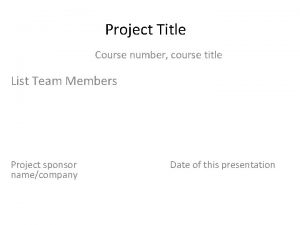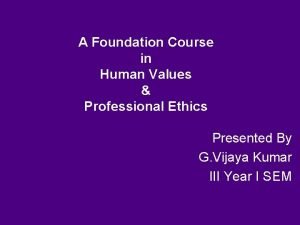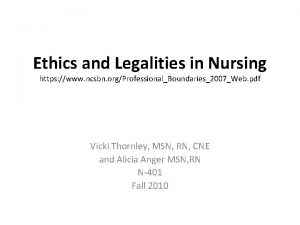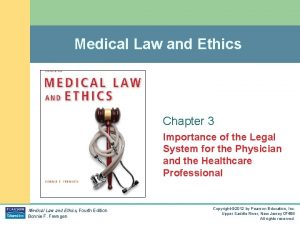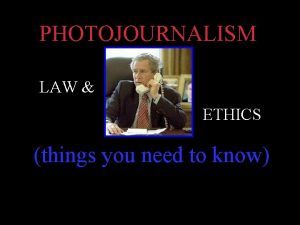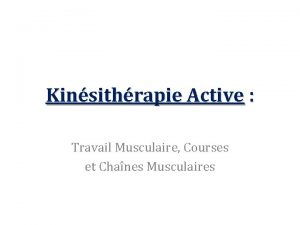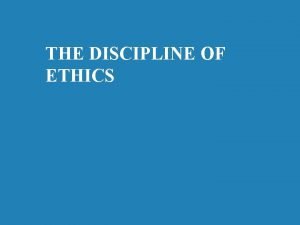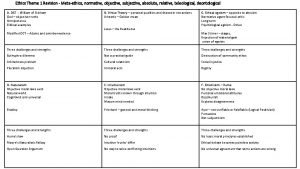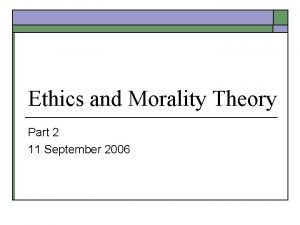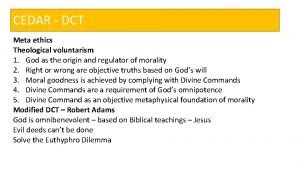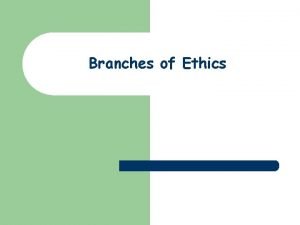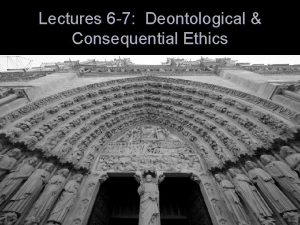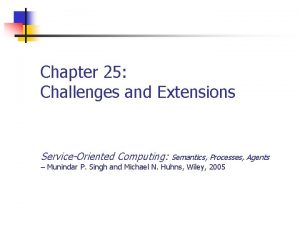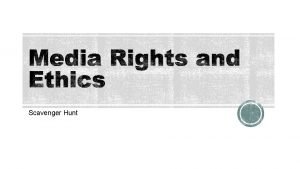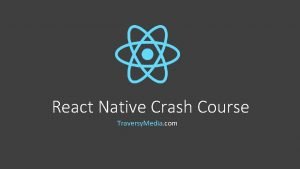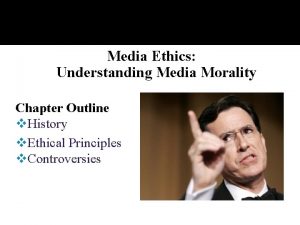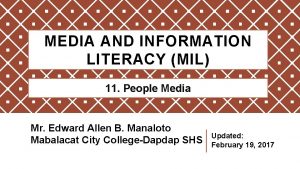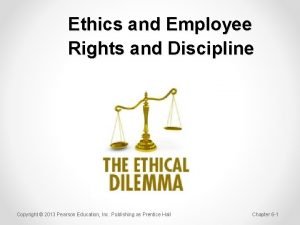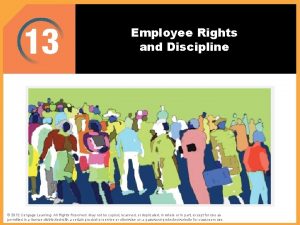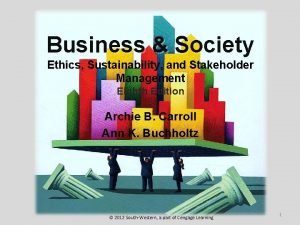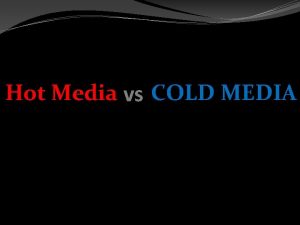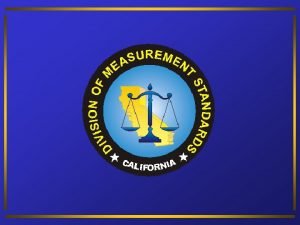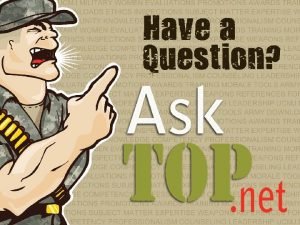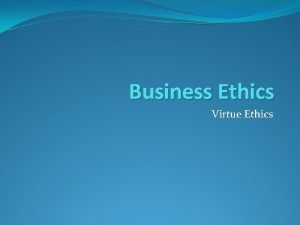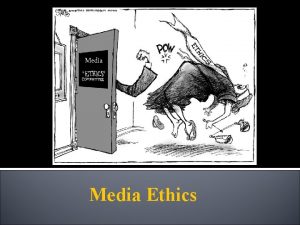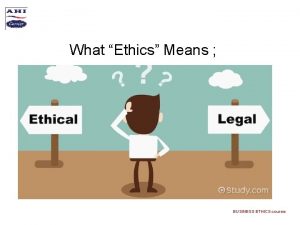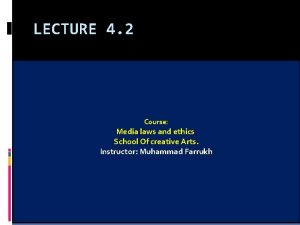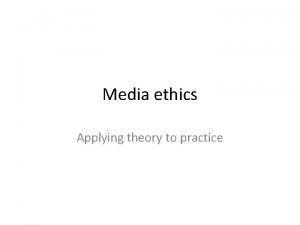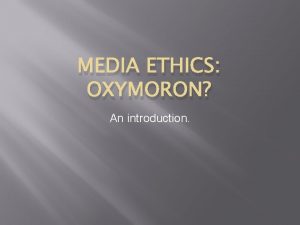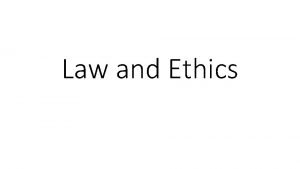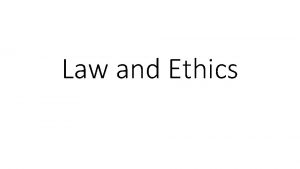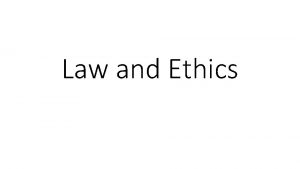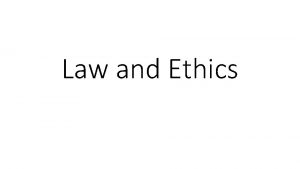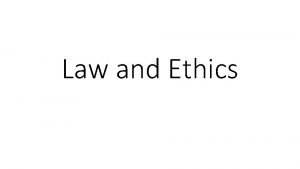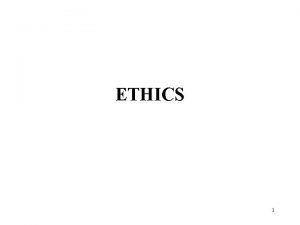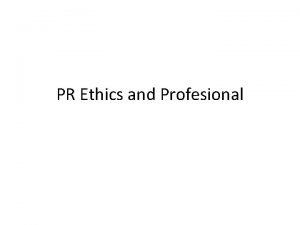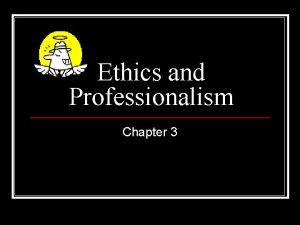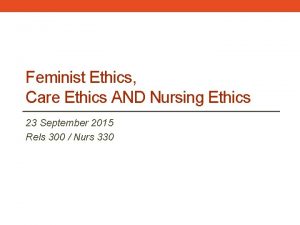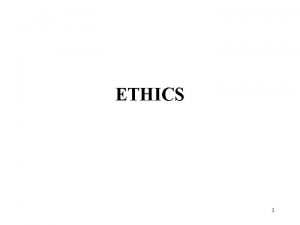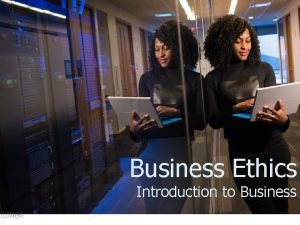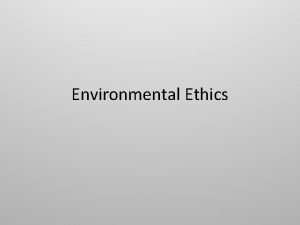Media laws and ethics 12 Course Media laws


































- Slides: 34

Media laws and ethics (1+2) Course: Media laws and ethics 3. 00 Credit Hours BS Mass Com Instructor: Muhammad Farrukh Email: mufch 125@gmail. com 0344 -4076539 © www. uogsialkot. edu

Topic: MEDIA ETHICS

“ I fear the newspaper more than a hundred thousands bayonets” Napoleon Bona part

EHTICS: A set of principles of conduct System or theory of moral values Rules or standards governing the conduct of a person or the members of a profession Concept originated from Greeks Ethics means to know the diffrence between good or bad


ETHICS Ethics is a branch of philosophy. It is related to human nature. It reflects our behavior. It plays an important role in building up our nature and behavior. As a society is made by people and their behavior and ethics plays an important role in organizing our behaviors so it is an important part of a society.

Definitions: Ethics is a branch of philosophy that deals with moral component of human life. Explanation �Ethics are involved in a society to a great extent. Even they are much involved in human life therefore the more a person is having or following ethics in his life, the more his life become decent, disciplined and organized. Hence it is an important component of human life.

Definitions: It reflects a society’s notions about the rightness or wrongness of an act and the distinctions between virtue and vice. Ethics is taken as a collection of principles or a code of rules. It consists of such rules which a society adopts in its daily routine. Sometimes some of the rules or principles are set by the society and you have to obey them. For example drinking is prohibited in an Islamic society but there are no restrictions in western societies on it. Therefore being a Muslim and a part of Muslim society it is compulsory for us to stay away from it. Even for an Islamic state it is unlawful. But if we are in a western society as there is no restriction hence now is the place where our ethics comes into action.

Ethics Moral principles that govern a person’s behaviour or the conducting of an activity.

MEDIA ETHICS: Principles and moral values one should uphold while working as a journalist Media is the fourth pillar of a state; thus it should know its responsibilities and keep in mind the ethical and moral values while disseminating information Know what to be published or broadcasted and what should not

Code of ethics for Journalists Minimize harm: It is essential that all risks of being misleading, or inconsiderate to subjects and sources be minimized. This is especially relevant to those engaging in original reporting. To minimize possible harm, we encourage our writers to do the following: • Ensure facts are correct by getting verification from multiple sources. • Try to contact the subject of the article whenever possible. • Not publish an article based solely on speculation, hunches or wild guesses. • Before publishing, make a mental list of all parties involved in the article and think about how each will feel about the article.

Code of ethics for Journalists Avoid misrepresentation Do not publish any sort of interview story without ensuring that the interviewee is absolutely happy with the articles final text. Even if this means giving up the interview – Wiki news will only lose out if it offends interviewees - remember to respect that they have taken the time to talk to us.

Code of ethics for Journalists Get all sides of a story Ensure sources and quotes from both sides of an argument are included in articles to avoid being biased towards either side. Ideally, all opinions expressed in an article should be direct quotes. Wiki news has no official opinion on anything; however, sources often do.

Code of ethics for Journalists Respect anonymity Any source that requests to remain anonymous is fully entitled to this. You are not obliged to bring up the possibility of anonymity, but you are obliged to honor requests for it. It is important not to apply undue pressure to the source if they do not wish to be named. Explaining to a source why you would prefer them to go on the record is a gentle and often effective way of persuading them to do so. In any case, the decision rests with the source.

RESPONSIBILITY OF A JOURNALIST: A journalist must know his following general responsibilities: Social Legal Professional


NEED FOR JOURNALISTIC ETHICS: To bring highest quality of news reporting To fulfill the mission of timely distribution of information To spread positivity To avoid negativity To have a frame-work for self-monitoring and self-correction so the journalist will know what is right and what is wrong

A JOURNALIST SHOULD ASK HIMSELF:

CONTINUE. . . What is my journalistic purpose? What is my personal motivation? How can I include others with different perspectives and diverse ideas? Have I included in fair measure perspectives I disagree with? Have I got my own preffered outcome-an agenda?

CONTINUE. . . What are the possible consequences of my actions-short and long term? What are my alternatives to maximise my truth-telling responsibility and minimize harm? Am I able to justify my thinking and my desicions to my colleagues, the stakeholders and the public?

Ethics and Media has always got a great attraction for people. Since its evolution it has been performing its duty of entertaining as well as guiding people. Weather it is print media or electronic media people always tries to adopt its importance in their daily life. With the evolution 0 f print media people had a great thirst for it. They take it as their foremost source of information. Hence media start playing three main roles which are as follows. • Information • Entertainment • Guidance

Ethics and Media With the addition of features and columns and magazines people’s interest was enhanced and they started idealizing the writers. They take their writings as for their guidance. Observing that much importance of media, there should be some limitations set for it. So that writers cant go beyond the ethics. Their writings and publications should be checked and controlled. For that matter certain laws to regulate media were formulated to keep a check on it. Hence a code of ethics was formulated for print media which is to be obeyed by the publishers.

Hutchins Commission: Social Responsibility Ethics In 1947 widespread concerns about the ethical behavior of the press led Henry Luce, the founder of Time magazine, to form a commission to study the responsibility of the press in the United States. The report reached two major conclusions: 1. The press has a responsibility to give voice to the public and to society. 2. The free press was not living up to that responsibility to the public because of its need to serve its commercial masters.

Hutchins report (1947): The social responsibility theory of the press, holding that the press has an ethical obligation to society, arose from the Hutchins report. The Hutchins Commission listed five requirements for a responsible press: 1. The media should provide a truthful, comprehensive, and intelligent account of the day’s events in a context that gives them meaning. 2. The media should serve as a forum for the exchange of comment and criticism (that is, the press should present the full range of thought and criticism). 3. The media should project a representative picture of the constituent groups within the society. 4. The media should present and clarify the goals and values of the society. 5. The media should provide full access to the day’s news.

Sources of Ethics: There are certain sources of ethics. These sources include those persons, places or people which affect our lives at different stages and thus help us in developing and adopting our ethics. These sources are as follows. Parents are the primary and most important source of ethics. They are the first source whish introduce us to the worlds. They teach us how top behave, how to talk how to walk, how to eat and above all how to develop our ethics i. e. the way to deal with others.

Peer Group Our second source of ethics is our peer group. This includes our age fellows and our friends. So it is the first time when you interact with the people other then your family. You gain many things from here also. The most important thing you get from your peer group is the development of your attitude. For example some of the children developed tolerance. Others may gain to react harshly to certain situations. Hence italso play an important role in developing ones self.

Educational Institutions It includes development at two levels. School level when we are at a stage of learning and adopting thing. At this period of age children try to copy others. They try to gain the qualities of those personalities which they like the most. So people around him specially teachers try to develop good qualities in them. They try to make them differentiate between right and wrong. At Higher Educational level when children have both the pictures in front of them. Now they are socially bound to show their ethics. It is the time when others expect the particle side of their ethics they have learned so far. Hence they have to prove themselves what kind of nature he has developed so far.

Observations & Experiences After passing through your higher education, the next source is our own observations and experiences. Because at this level we are mature enough to observe our society. Secondly when we talk about experiences then there are two possibilities. 1. We can learn from others’ experiences 2. We can experience our self. Society: This is the biggest source of learning as it is effective at all stages of life but becomes even more effective when we comes in our particle life. It is the time or stage which requires more responsibilities and ethical behavior from us.

Code of Ethics: Definition: A Code of Ethics is a set of standards, rules, guidelines, and values that govern and guide ethical business behavior in a company, profession, or organization of it's employees, interactions among the employees, and interactions between the employees and the general public. Some codes of ethics have the force of law. Violations of these codes may be subject to administrative (e. g. , loss of license), civil or penal remedies. where as some codes can be enforced by the propagation by organization alone; a violation of these codes is usually limited to loss of membership in the organization. The effectiveness of codes of ethics depends on the extent to which the management of the organization embraces and supports them.

Common elements (Objectivity) Unequivocal separation between news and opinion. Inhouse editorials and opinion pieces are clearly separated from news pieces. News reporters and editorial staff are distinct. • Unequivocal separation between advertisements and news. All advertisements must be clearly identifiable as such. • Reporter must avoid conflicts of interest, incentives to report a story with a given slant. This includes not taking bribes and not reporting on stories that affect the reporter's personal, economic or political interests. See envelope journalism. Competing points of view are balanced and fairly characterized.

Common elements Seek the Truth and Report It Journalists should be honest, fair and courageous in gathering, reporting and interpreting information. Journalists should: Test the accuracy of information from all sources and exercise care to avoid inadvertent error. Deliberate distortion is never permissible. Diligently seek out subjects of news stories to give them the opportunity to respond to allegations of wrongdoing. Identify sources whenever feasible. The public is entitled to as much information as possible on sources‘ reliability. Always question sources’ motives before promising anonymity.

Common elements Seek the Truth and Report It Never distort the content of news photos or video. Image enhancement for technical clarity is always permissible. Label montages and photo illustrations. Avoid misleading re-enactments or staged news events. If re-enactment is necessary to tell a story, label it. Avoid undercover or other surreptitious methods of gathering information except when traditional open methods will not yield information vital to the public. Use of such methods should be explained as part of the story

Common elements (Never plagiarize) Tell the story of the diversity and magnitude of the human experience boldly, even when it is unpopular to do so. Examine their own cultural values and avoid imposing those values on others. Avoid stereotyping by race, gender, age, religion, ethnicity, geography, sexual orientation, disability, physical appearance or social status. Give voice to the voiceless; official and unofficial sources of information can be equally valid. Distinguish between advocacy and news reporting. Analysis and commentary should be labeled and not misrepresent fact or context.

Any Questions?
 Course title and course number
Course title and course number Foundation course in human values and professional ethics
Foundation course in human values and professional ethics Micro and macro ethics difference
Micro and macro ethics difference Difference between laws and ethics
Difference between laws and ethics Chapter 3 healthcare laws and ethics
Chapter 3 healthcare laws and ethics Rules of photojournalism
Rules of photojournalism Building with bricks
Building with bricks Course interne moyenne externe
Course interne moyenne externe Descriptive ethics vs normative ethics
Descriptive ethics vs normative ethics Realism vs anti realism
Realism vs anti realism Factual inquiry in ethics
Factual inquiry in ethics Methaethics
Methaethics Descriptive ethics vs normative ethics
Descriptive ethics vs normative ethics Normative vs descriptive ethics
Normative vs descriptive ethics Meta ethics vs normative ethics
Meta ethics vs normative ethics Main branches of ethics
Main branches of ethics Deontological ethics
Deontological ethics Teleological ethics vs deontological ethics
Teleological ethics vs deontological ethics Gas laws crash course
Gas laws crash course Facts about montesquieu
Facts about montesquieu Media rights and ethics scavenger hunt answer key
Media rights and ethics scavenger hunt answer key React traversy media
React traversy media What are social media ethics
What are social media ethics Understanding media ethics
Understanding media ethics Similarities between people as media and people in media
Similarities between people as media and people in media Ethics and employee rights and discipline
Ethics and employee rights and discipline Ethics and employee rights and discipline
Ethics and employee rights and discipline Business and society ethics and stakeholder management
Business and society ethics and stakeholder management Cold media
Cold media Hot media and cold media
Hot media and cold media Wired media and wireless media
Wired media and wireless media Hot cold media
Hot cold media Module 7 weights and measures
Module 7 weights and measures Holder and holder in due course difference
Holder and holder in due course difference Prc-137 hf radio
Prc-137 hf radio
